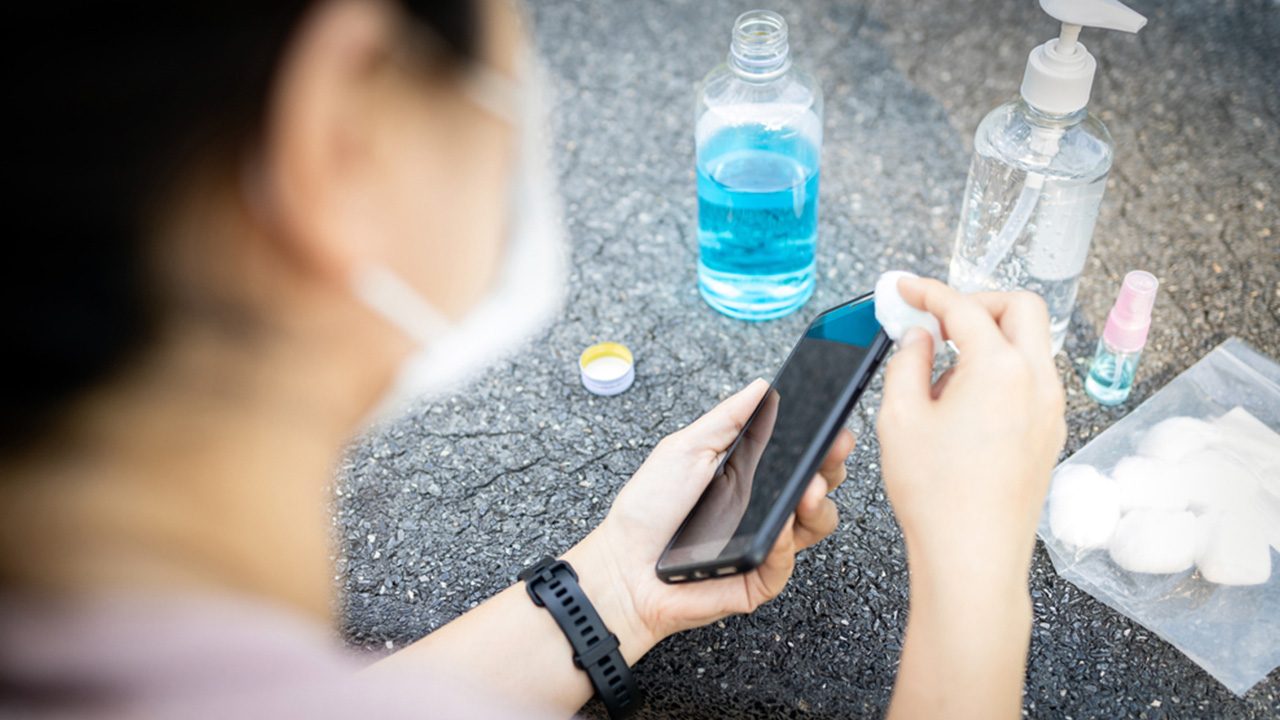SUMMARY
This is AI generated summarization, which may have errors. For context, always refer to the full article.

When was the last time you actually cleaned your phone? If you can hardly remember, then it’s probably been too long, and that can be a problem in the wake of the novel coronavirus, or COVID-19.
Think about it: Your phone is the one thing you hold the most throughout the day, and it goes with you just about everywhere – the office, the bed, the dining table, and even the bathroom – letting it collect germs and bacteria in the process.
Though these infectious particles won’t immediately make you sick while they persist on the surface of your phone, they can still find their way into your system when you touch your eyes, mouth, or nose after, say, you check your Instagram feed or send a text. Taking calls also puts your potentially contaminated phone close to your face.
Should I be concerned?
You’re now probably wondering if you can contract COVID-19 in the same way. And the answer is not entirely clear yet, but there’s definitely some risk involved as according to a recent study published in the Journal of Hospital Infection, coronaviruses can survive in the plastic and glass materials found on smartphones at room temperature for up to 9 days. How much these devices contribute to transmission, however, is not yet known.
But in times like these, we would always rather be safe than sorry. That’s why Singapore’s Health Ministry last February said that regularly disinfecting and cleaning your digital companions is just as important in protecting yourself from the disease as washing your hands.
How to disinfect your phones
So how do you disinfect your mobile devices?
Before you grab your alcohol bottle in panic, there’s actually a proper way to clean your phone. Alcohol can kill the germs on your phone, but it can also damage its display. See, rubbing harsh chemicals on your phone’s screen can damage the oil-repellent coating that protects it against fingerprints and keeps it in working condition.
What you can do is gently wipe it with a soft cloth – preferably a microfiber cloth to avoid scratches – damped with soapy water or screen cleaning solution, as advised by The Independent. You should also be fine mixing rubbing alcohol with water, as long as you’re not using more than 50 percent alcohol.
Apple, meanwhile, updated their support page amid the coronavirus outbreak, saying you can clean iPhones and its other devices using 70-percent isopropyl alcohol and Clorox wipes.
Public health professor Peter Hall wrote in The Conversation that you should do this at least twice daily, once at lunch and once at dinner time. But it’s still best to clean it everytime you feel that it’s been exposed to contaminants or other risk factors.
In case that’s not enough to ease your worries, you can buy phone sanitizers too. These devices emit ultraviolet light rays, which supposedly stop the harmful particles on your phone from multiplying. But it’s worth noting that its effectiveness against coronaviruses have yet to be tested.
There are also some simple steps you can follow to avoid contamination. For instance, you can use speakers or earphones when taking calls to save you from having to hold your phone close to your face. You should also try to avoid letting other people use or touch your phone. And of course, you can make sure it doesn’t get dirty in the first place by thoroughly washing your hands before using it. – Rappler.com
Add a comment
How does this make you feel?
There are no comments yet. Add your comment to start the conversation.